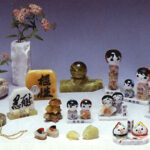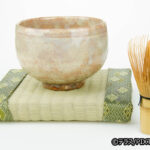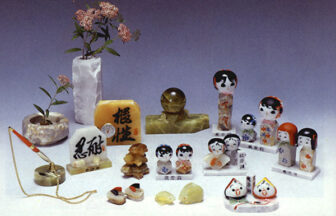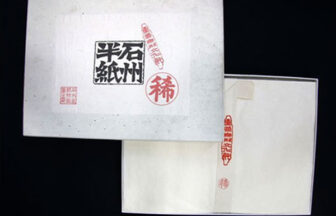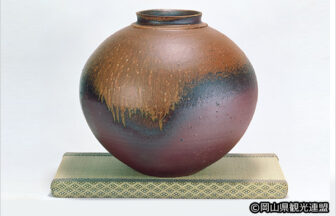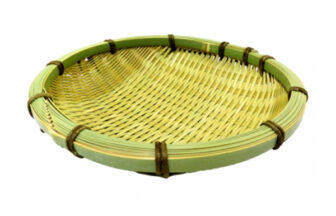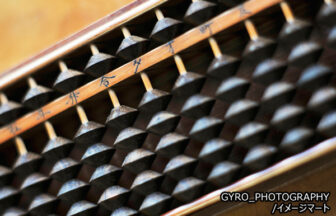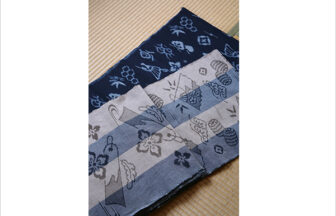Production Area
Ube City / Shimonoseki City, Yamaguchi Prefecture
Historical Details and Geographic Characteristics
Akama inkstones were presented to the Tsurugaoka Hachimangu Shrine (Kamakura City, Kanagawa Prefecture) in 1192 and have a long history of over eight hundred years as they were first manufactured in the early Kamakura period. The Akama stone is highly suitable for inkstone, with its reddish tints, delicate patterns such as “ishime” (round spots like eyes), and varied hues. The Akama stone used to be quarried only in the Kanmon region before expanding to the Asa district of Sanyo-Onoda City in the mid-Edo period, and is currently mined mainly in Ube City.
It is said the name “Akama” comes from the ancient production site, Akamaseki (nowadays Shimonoseki), where inkstone production has traditionally been practiced before it expanded to the Iwakura district in Ube City during the Meiji period. Akama inkstones are famous not only for their quality but also for being the work of only one craftsman, from the quarrying of the stones in the mountains to crafting the inkstone. After carefully selecting and mining the stones in the dangerous tunnels, it takes a dozen processes to shape, carve and craft the stone, using traditional methods and techniques passed down from generation to generation, to produce a one-of-a-kind Akama inkstone.
Main Retailer/Exhibition Facility
Akama Suzuri no Sato
| Address | 793 Nishimagura, Ube City, Yamaguchi Prefecture |
|---|---|
| Phone | 0836-67-0641 (Yamaguchi Akama Inkstone Production Cooperative) |
| Hours of Operation | 9:00 a.m. – 5:00 p.m. (Reservations are required for tours) |
| Closed | Year-end/New Year holidays, Irregular holidays |
| Admission Fee | Free |
| URL | https://ube-kankou.or.jp/sightseeing/traditional-crafts/post-32.html |





